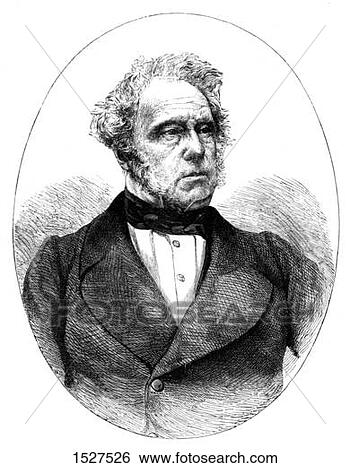 Lord Palmerston was not a popular Foreign Secretary with the establishment. Though he was very popular with rest of the country and had lofty ideas of how England should 'with the strong arm of England' defend its citizenry 'against injustice and wrong'. He meant a certain kind of citizen or subject. Queen Victoria was not keen on his style of public diplomacy at all. He was often doing things without telling Her Majesty. He ignored her wishes, and other ministers, and gave her lectures about his grand liberal causes.
Lord Palmerston was not a popular Foreign Secretary with the establishment. Though he was very popular with rest of the country and had lofty ideas of how England should 'with the strong arm of England' defend its citizenry 'against injustice and wrong'. He meant a certain kind of citizen or subject. Queen Victoria was not keen on his style of public diplomacy at all. He was often doing things without telling Her Majesty. He ignored her wishes, and other ministers, and gave her lectures about his grand liberal causes. At one point he got involved with the case of a well-to-do moneylender by the name of David 'Don' Pacifico, a Gibraltarian Jewish gentleman who had his house burnt down by an allegedly anti-moneylender/anti-semitic mob in Athens in 1847. Greece has had problems with moneylenders and external interference ever since.
His ensuing claim for compensation was somewhat exaggerated and the Greek government refused to pay him a farthing. The Foreign Secretary took up the case of the wealthy money-lender as a loyal subject of a Crown colony. He initiated four days of parliamentary time to discuss the situation. Palmerston delivered a famous five-hour speech in which he sought to vindicate not only his claims on the Greek government for Don Pacifico, but his entire administration of foreign affairs.
Palmerston won the vote but was later censured in the House of Lords. As Foreign Secretary, without consulting the Queen, he deployed the navy to seize Greek boats and blockaded the main port of Athens at Piraeus to force payment from the government. In so doing he upset the French who had brokered a diplomatic deal to settle the matter and the Russians who were co-guarantors of the newly independent Greek state. At one point during the crisis the French ambassador left London in disgust.
The blockade lasted two months and severely damaged the reputation of puppet King Otto of Greece. It also deeply annoyed and embarrassed Queen Victoria and the Prime Minister of the day Lord John Russell. Eighteen months after this debacle Palmerston is given his marching orders and is sacked from office after starting another of his public diplomatic efforts in supporting Louis Napoleon's coup in France without the full approval of his Prime Minister and his Queen. He was sacked for "violations of prudence and decorum".
Palmerston was the quintessential gunboat diplomatist. He had also made the Chinese sign the Treaty of Nanking after defeating them in the First Opium War of 1842. This treaty opened up 5 Chinese ports to the ubiquitous 'free trade' system of the time. Opium was the highest valued commodity of its day in the 19th century and the Chinese were forced to buy it in exchange for Chinese silk and tea for the UK market. In 1856 Chinese officials boarded a British colonial registered boat called the Arrow suspected of acts of piracy. It was this pre-text that gave Palmerston the casus belli for another war for his own brand of free trade. This sparked off another round of sabre rattling and gunboat diplomacy by Palmerston and the start of the Second Opium War which was no more than a ruse to impose further trade agreements with the Chinese. The Chinese soon realised that the Arrow incident had provided the international pre-text to imposing Imperialist solutions without reference to justice or honour. (1) The Chinese have not forgotten to teach each generation afterwards about these humiliations inflicted on them by Western Imperialists forces and powers.
Palmerston represented a gradual change of diplomatic style which can be seen developing. He is the 'Old Public Diplomacy' morphing into the 'New'. The reaction against Palmerston's high handed approach lead to more consultation between the Crown, ministers and the Foreign Office during Queen Victoria's reign. However it can be seen that the emerging Imperialist Americans adopted a similar tenuous 'pre-text' strategy most famously in the Gulf of Tonkin incident in 1964 in which a series of incidents at sea allowed President Lyndon Johnson to start a the land invasion of Vietnam. Johnson then escalated the war without Congresses approval which damaged his legacy. Just as the WMD intelligence dossier proved to be the flimsy pre-text, once again, for the G.W. Bush US government and the Tony Blair administrations invasion of Iraq. Wars are still being fought on flimsy 'pre-texts'.
Don Pacifico: The Acceptable Face of Gunboat Diplomacy by Derek Taylor
Chronicle of Britain and Ireland (1992) JL Publishing/Random Century
PM Blair and Pres. Bush "apologise"
Inside Iraq Al Jazeera 7th June 2010
http://youtu.be/B0Zg-OwnvWA
No comments:
Post a Comment